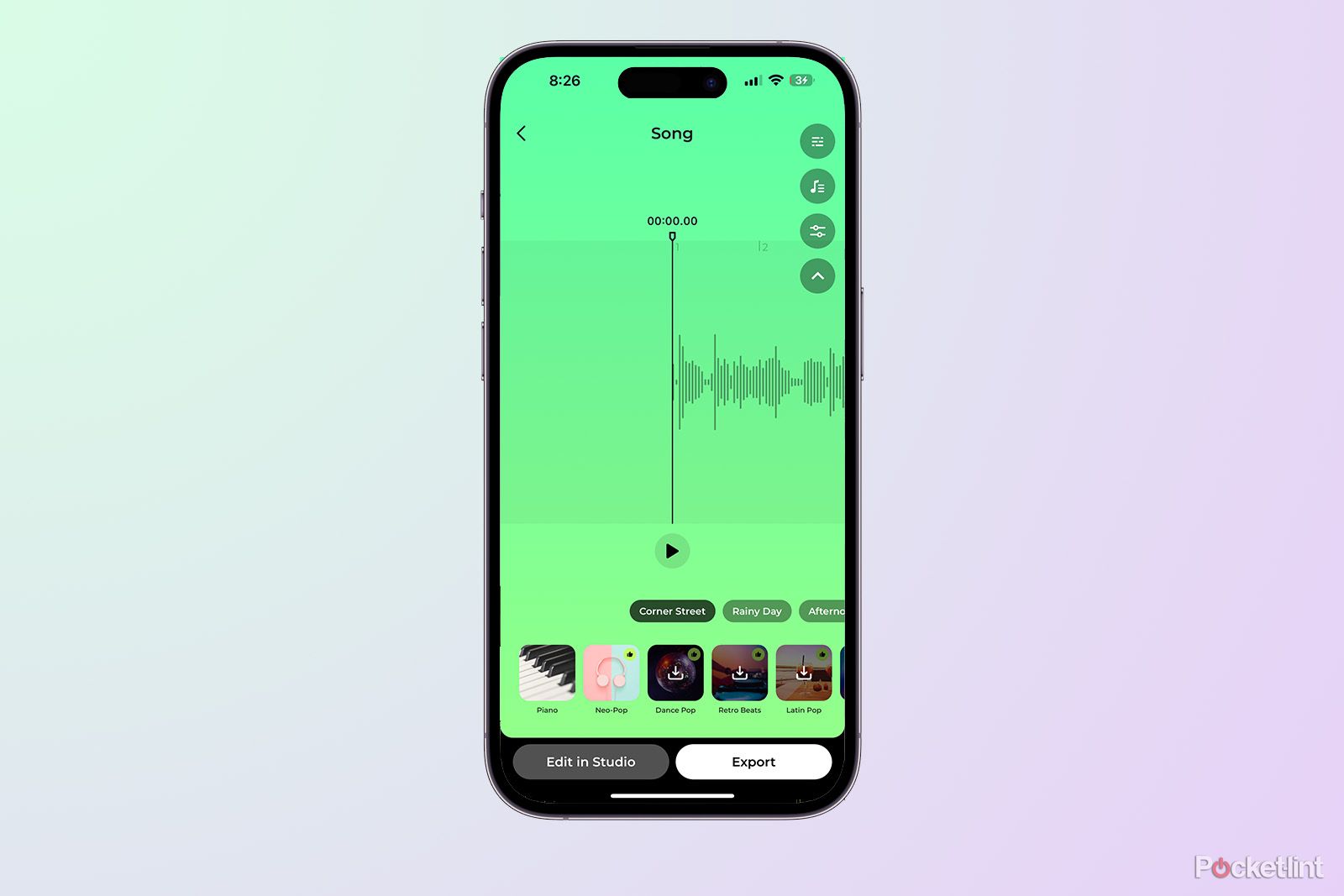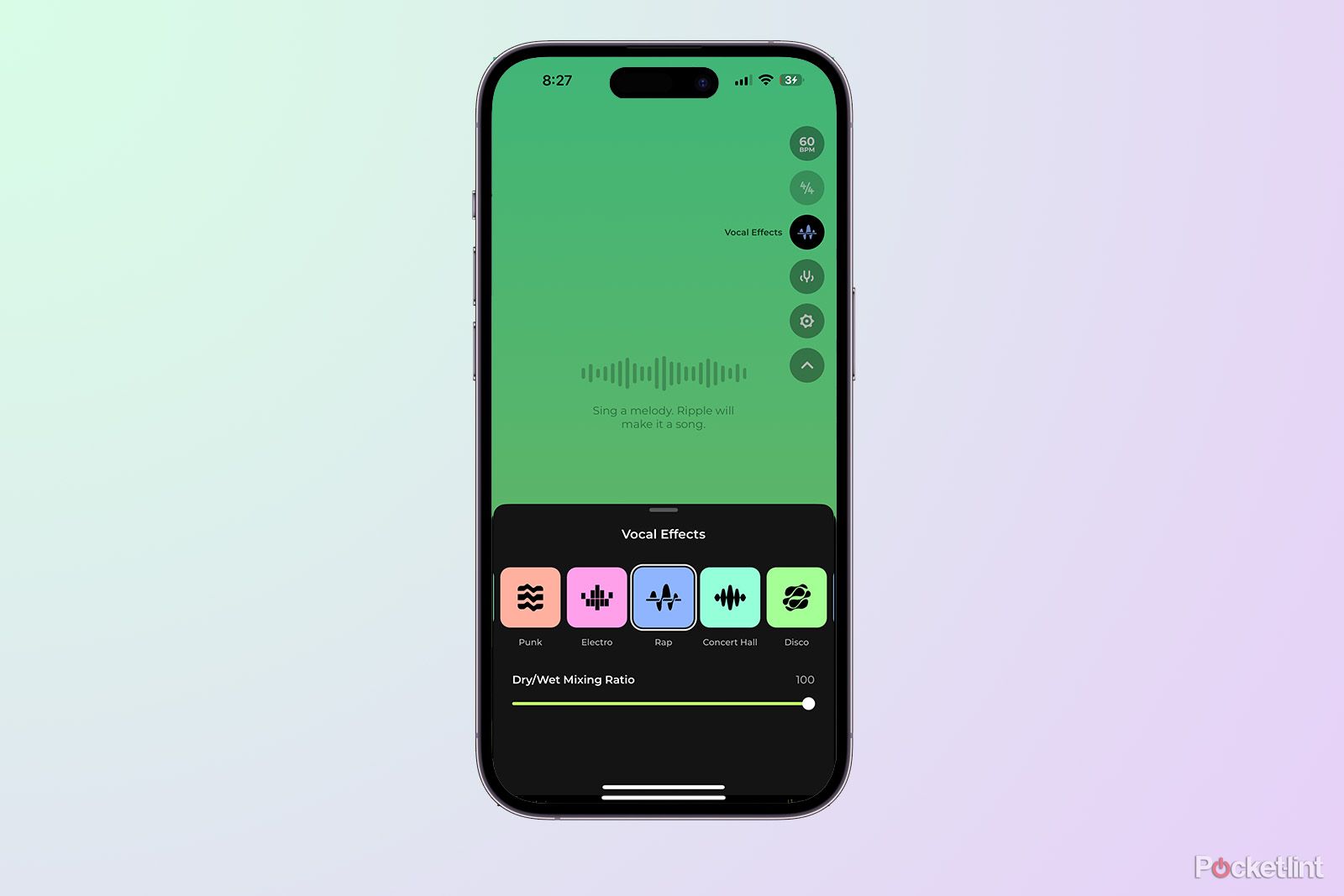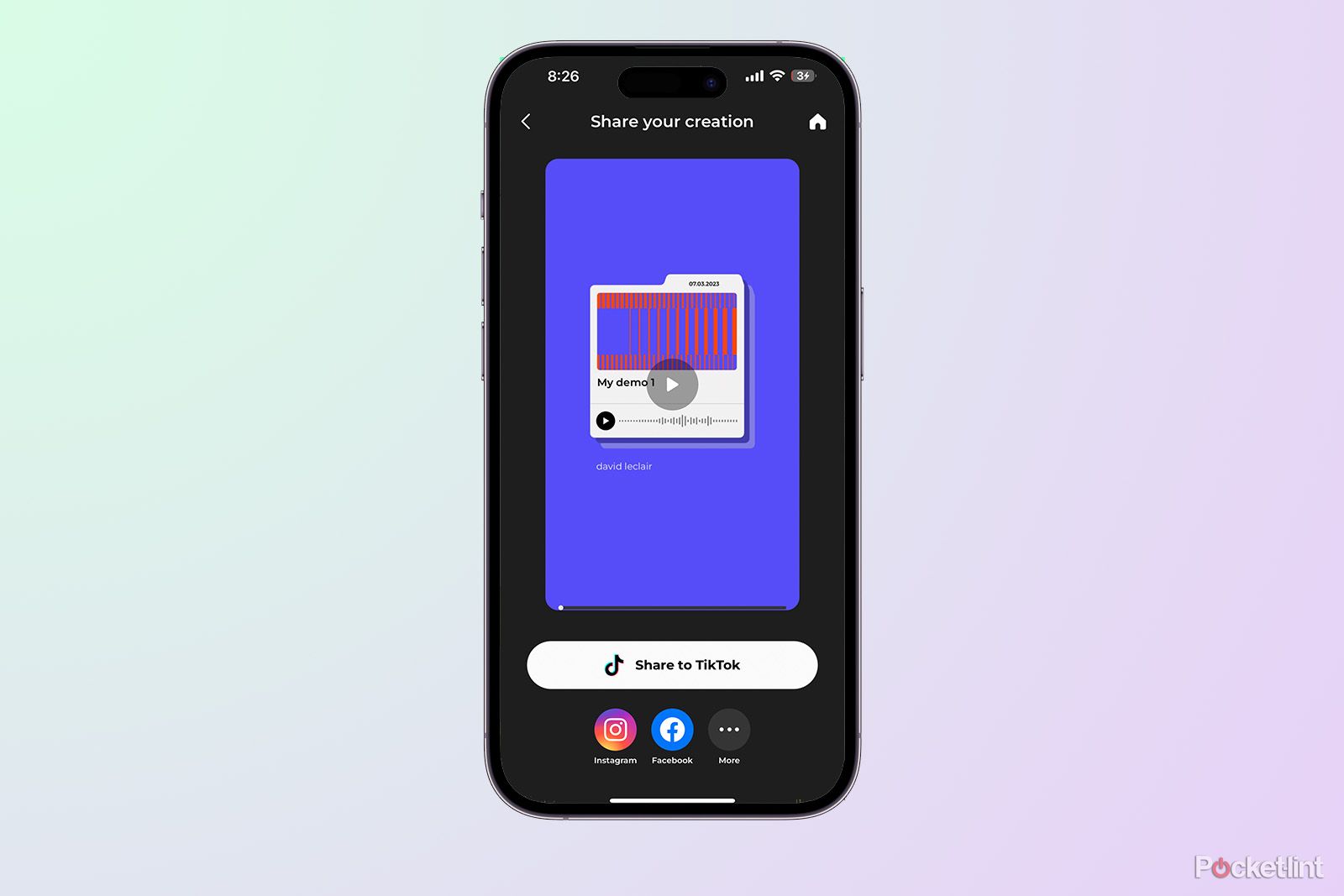TikTok is one of the most popular apps for video creation. ByteDance, the owner of TikTok, isn’t content to dominate just the video world. Ripple is the latest creation from the firm and it has just launched in a closed beta. The app is designed to take the complex process of working with a digital audio workstation (DAW) and simplify it for mobile.
While it’s hard to imagine Ripple replacing an entire DAW for professional musicians, that’s probably not the goal for ByteDance. After all, TikTok doesn’t replace feature films but instead serves as a way for regular people to create entertaining videos. Ripple could do the same for music and audio creation, but we’ll have to wait until it launches to the public to see if Ripple can make waves.
What is Ripple?
The quick answer is simple: Ripple is an app designed to make creating music on a mobile device easy.
It is the latest creation from ByteDance, the company behind the wildly popular social video app TikTok. In ByteDance’s own words, “Ripple is an innovative portable audio workstation. Our vision is to support creators to expand their inspiration into music.” When using the app, you can hum or sing a melody into it, and it’ll use AI to generate an instrumental track based on that melody. That means people who cannot get into a recording studio with instruments can create songs relatively easily.
How does Ripple work?
I tested Ripple to see what I could create, and the tools were fairly robust. You can choose a tempo for your creation, add effects to your voice, choose the style of music you’d like, and much more. I sang a few bars in my terrible singing voice into the app, which then outputted something resembling a decent song. Sadly, style choices don’t include anything rock or metal, so if you like harder music, you’ll be disappointed.
Besides creating songs based on a melody, the app has basic DAW features like recording, trimming, cutting, and editing audio files on their phone. And those basic tools are just the beginning, as the company plans to add more going forward, though it didn’t get into specifics as to what.
What is Ripple’s purpose?
It seems that ByteDance has two goals with Ripple. Firstly to make something like ChatGPT but for music creation and secondly, to offer basic tools for humans to edit audio files. The former is far more interesting, as creating full songs has always been limited to people with the tools and talent to play and record instruments (or, at the very least, to manipulate samples in a DAW). Anyone can hum or sing a basic tune.
ByteDance seems to see Ripple as a tool that works hand-in-hand with TikTok. In a statement to TechCrunch, the company said, “We’re excited to see how creators use Ripple to tap into their creativity to soundtrack their short-form videos.” Rather than using current pop songs, TikTok creators could hum a melody that fits their video and use Ripple to make a song for them. All you’ll need to do is share a track from Ripple to TikTok to use it as a soundtrack for a video, so the process sounds painless.
An important limitation of Ripple at this time is that it only creates instrumental music, so vocals would need to be done the old-fashioned way. Based on what we’ve seen from AI image generation, it could be interesting to see some of the horrors AI creates for vocals, but we’ll have to wait to see if ByteDance adds vocals at some point in the future. Additionally, the length of the output matches the input, which means you can’t hum 10 seconds of melody to get a three-minute song. If you hum, sing, or make noise for exactly one minute and 15 seconds, the song created by Ripple will be the same length. There doesn’t seem to be a cap on the length of a song.
What issues could Ripple face?
Like ChatGPT and other AI generation tools, Ripple could face pushback from content creators who will be concerned that AI is performing the craft they’ve dedicated their lives to. Just like journalists and writers are concerned that AI could take their jobs, musicians could have the same concern. However, based on early testing, the songs created by Ripple don’t seem diverse enough to be a real threat yet. That could change as the model learns more, but for the time being, the sounds created have a certain sameness to them that doesn’t seem capable of replacing the creativity of a real musician.
There’s also the copyright issue, though ByteDance says that its AI model is trained using its own music, so it shouldn’t be able to borrow melodies from the latest hot pop song. Of course, if something created by the AI in the app does sound too similar to an existing song, there could be some backlash from the original creator, which could lead to some legal problems for ByteDance.
An important issue is that ByteDance’s Ripple music creation app has nothing to do with the existing Ripple apps and services out there. It’s unrelated to the XDR Ripple cryptocurrency or the Ripple crypto business solution service of the same name. There’s even an interactive story app called Ripple that’s not part of the music-making app. The name Ripple is widely used, which could be an issue for the new app going forward.
Who is Ripple useful for?
Ripple’s main target audience seems to be content creators on TikTok who can’t or don’t want to create their own music. However, a big part of what makes a video successful on TikTok is using existing viral sounds and songs, so creating a song through Ripple and using it removes that method of discovery. Of course, the songs created through Ripple could replace some of the existing popular songs used on the video-sharing app, but that could take time.
Based on my time using Ripple, I can’t see musicians actually adding it to their workflow, as it doesn’t offer enough flexibility to replace a full DAW. It’s definitely targeted at less musically-talented individuals who want to throw together something simple to use as their background music on a video.
How can you try Ripple now?
Ripple is currently in a very limited closed beta in the United States, which means it’s unlikely that you can try the app yourself. The company set up a website with email addresses you can attempt to reach out to. The addresses are contact@ripple.club, feedback@ripple.club, and marketing@ripple.com. The first will be the most logical to reach out to if you want to request beta access, as the others sound like they’re for existing testers or marketers looking to work with the company.
ByteDance hasn’t revealed when it plans to move the app from private beta to public availability.



